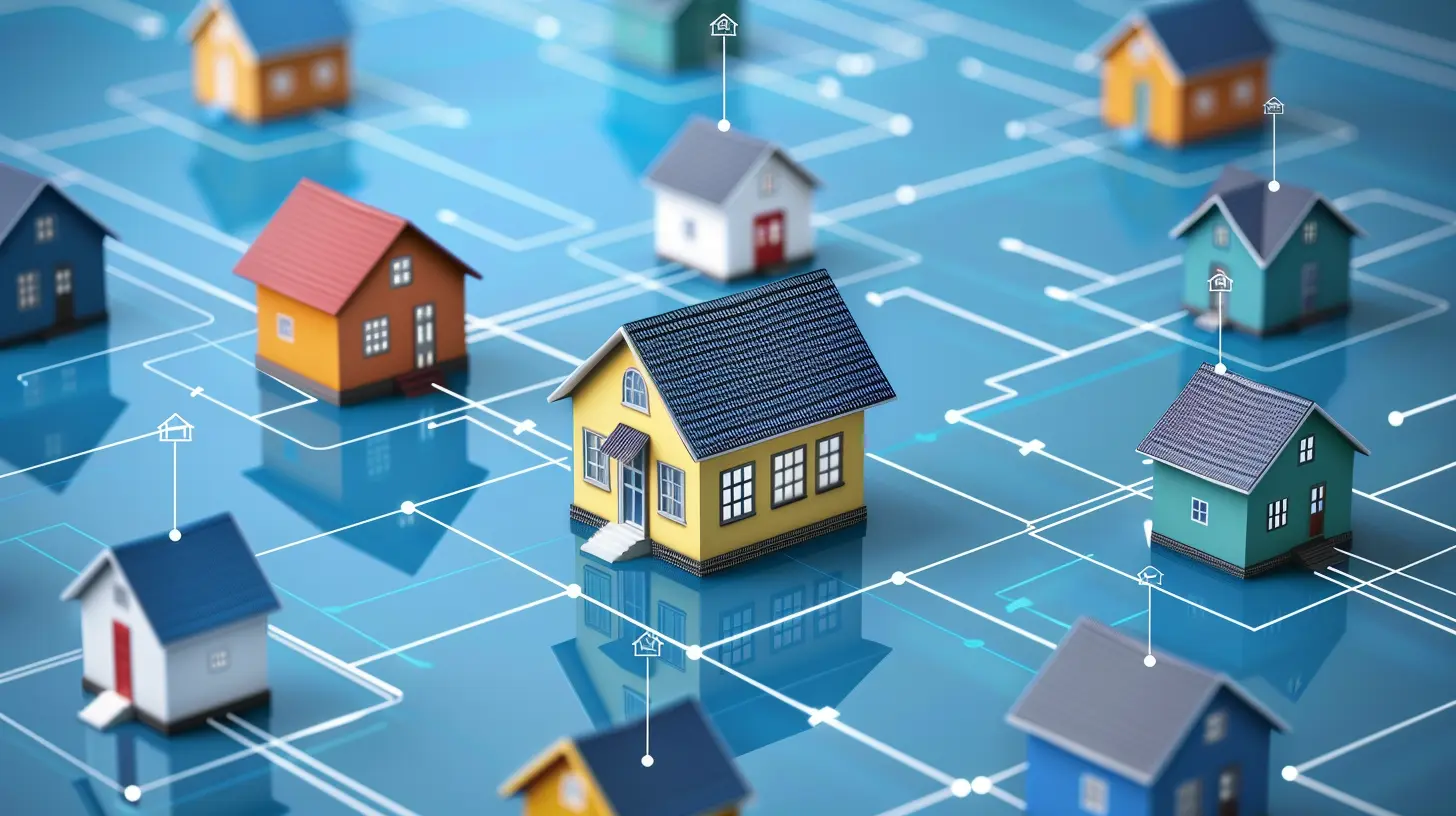Virtual Real Estate Networking: Connecting in the Digital Age
14 November 2025
Let’s be real for a second — real estate has always been about relationships. Whether you’re a seasoned investor, an up-and-coming agent, or someone just dipping your toes in the property pool, you probably already know this: who you know still matters. But here’s the twist — how we connect with people in the real estate space has totally evolved.
Welcome to the era of virtual real estate networking. No more awkward meet-ups at hotel conference rooms or handing out business cards over lukewarm coffee. Now, it’s all about Zoom calls, webinars, virtual summits, and Instagram DMs. The digital age has cracked networking wide open — and you’ve got the keys.
In this deep dive (promise it’ll be fun and informative), we’ll walk through how virtual networking is transforming real estate, how to do it right, which tools you should be using, and why this shift might actually be the best thing that’s happened to the industry in a while.
Why Virtual Networking is the New Normal in Real Estate
Let’s face it — COVID-19 didn’t just shake things up, it flipped the table. Suddenly, in-person open houses were risky, broker meetups were canceled, and the daily grind shifted onto screens. But here’s what’s wild: many real estate professionals didn’t just survive — they thrived.People started realizing something important: virtual networking isn’t just a backup plan. It’s actually better in many ways. Think about it — you’re no longer limited by geography. A Florida agent can easily build relationships with an investor in California. One Zoom call, and boom — partnership started.
And it’s not just professionals. Buyers and sellers are also connecting in new ways. Before, an investor might wait until a local REIA meeting to find opportunities. Now? They hop on Clubhouse or LinkedIn and start conversations in real time.
The Digital Playing Field is Wide Open
The democratization of real estate networking is kind of exciting. You don’t need to be a 10-year vet with a massive contact book anymore. Your LinkedIn profile and Instagram feed can open doors just as easily.Beginners? They’re learning directly from top-tier pros on live webinars or in Facebook Groups. Veterans? They’re expanding their reach globally instead of being tied to one location.
In short — the gatekeepers are out. The playing field’s been leveled.
The Core Benefits of Virtual Real Estate Networking
It’s more than just convenience (although let's be honest — not having to commute is chef’s kiss). Virtual networking brings a stack of advantages that traditional methods just can’t match.1. Access to a Global Network
Want to invest in Texas but live in Toronto? No problem. Platforms like BiggerPockets, REtipster, or even YouTube put experts and partners within reach no matter where they are. Borders? What borders?2. Time and Cost Efficiency
Gas money, overpriced conference tickets, long days out of the office... yeah, no thanks. Virtual networking lets you hop in and out of events from your desk. Wear pajama bottoms for all anyone cares.3. Continuous Learning Opportunities
There are educational nuggets everywhere. From live podcasts to Q&A sessions on Reddit, a curious mind has endless ways to sharpen their skills.4. Easier Follow-Ups and Ongoing Conversations
It’s so much easier to nurture relationships online. A quick follow-up email, a comment on someone’s post, a DM — staying top of mind is just more organic in a digital space.
Where Virtual Real Estate Networking Happens
Alright, let’s get down to the practical stuff. Where’s all this digital real estate magic going down? Spoiler: It’s not just Zoom and email.1. LinkedIn: The Professional Powerhouse
If you’re not on LinkedIn, you’re missing out big time. Build a strong profile, post valuable content, engage in other people’s posts — and you’ll start attracting referrals, JV partners, and even clients.Pro Tip: Use LinkedIn search filters to find people in your niche. Message them with genuine interest, not a pitch. Nobody likes a cold sales email.
2. Clubhouse: Real Estate Conversations, Live!
This app is basically live podcasts meets radio. It exploded in popularity, especially in the real estate scene. There are daily rooms on flipping homes, multifamily investments, wholesaling — name it.You can listen, speak, ask questions... and make connections that stick.
3. Facebook and Private Groups
Facebook isn’t just for memes and baby photos. Private real estate groups are goldmines of knowledge, connections, and even deals. Look for active groups (with regular posts and engagement), and start contributing, not just consuming.4. Instagram and YouTube: The Visual Platforms
Instagram DMs are the new cold call. Seriously. Share your journey, post tours, show wins and failures, and let people connect with your personality.YouTube? A long-term play. It’s incredible for building trust and credibility. Imagine this: someone binge-watches your content, then messages you ready to partner. Powerful stuff.
Making Great Impressions Online (Without Being Cringey)
Now, just because it’s virtual doesn’t mean it’s easy. There’s a difference between showing up and standing out. So let’s talk strategy.Be Authentic, Not Salesy
People can sniff out a pitch from a mile away. Don’t slide into someone’s inbox with “Hey! I have a great opportunity for you!” Instead, comment on their content, ask questions, show support — build a relationship first.Bring Value First
Want to leave a good impression? Help someone. Share a useful tool, give honest feedback, connect them with someone in your network. People remember those who bring value with no agenda.Show Your Face (& Personality)
Platforms like Zoom, Instagram Stories, and YouTube are amazing because they let you show your real self. Don’t be afraid to be a little informal. Share your story. People connect with people, not logos and brands.Follow Up the Right Way
Met someone on a webinar? Send them a brief, friendly message. Something like:> “Hey Sam, really enjoyed your insight on the REI Mastermind webinar yesterday. Would love to connect and maybe swap ideas about creative financing sometime!”
Keep it light. Keep it warm.
Tools That Make Virtual Networking a Breeze
There are tons of tools out there, but here are some game-changers.- Zoom: Hosting virtual meetups or 1:1 calls? Zoom’s your go-to.
- Calendly: Make scheduling calls stupid simple.
- Notion or Trello: Keep track of who you’ve connected with and what you talked about.
- Loom: Want to send a quick, personalized video? Record a clip and send it in a DM or email.
- Slack or Discord: Some real estate communities use these for daily chats and quick Q&As.
Hosting Your Own Virtual Real Estate Event
Want to take things up a notch? Host your own webinar, mastermind, or virtual hangout. You’d be amazed how hosting events builds credibility fast.Here’s a simple blueprint:
1. Pick a niche topic (e.g., "How to House Hack Your First Property").
2. Promote it on LinkedIn, Facebook, and Instagram.
3. Invite a guest speaker or just share your own experience.
4. Use Zoom or StreamYard to host it.
5. Keep it interactive — open up for Q&A!
Boom — now you're a connector, not just a participant.
Challenges of Virtual Networking (And How to Beat Them)
Let’s not sugarcoat it — not everything about virtual networking is sunshine and rainbows.It Can Feel... Impersonal
You don’t get the same vibe as an in-person coffee chat, right? Eye contact, energy, body language — that stuff matters. But here’s what helps: show up on video when possible. Use voice notes. Make it feel real.Zoom Fatigue is Real
Back-to-back calls can be exhausting. Space out your calendar. And don’t be afraid to say, “Can we connect via email instead?” when a meeting isn’t necessary.Building Trust Takes Time
Without a handshake or shared lunch, trust-building may feel slower. Just keep showing up, adding value, and being consistent. Trust builds with time and transparency.The Future of Real Estate Networking is (Still) Virtual
As technology keeps evolving — think VR property tours, AI-powered deal finders, and interactive metaverses — digital networking will only grow more sophisticated.But here’s what won’t change: people crave connection.
Whether it’s through a screen or over coffee, relationships are still the beating heart of real estate.
So don’t treat virtual networking like a substitute. Treat it like a strategy — a highly effective one.
Final Thoughts: You Don’t Need to Be Techy – Just Be Human
Here’s what I want you to walk away with: You don’t need to be a tech wizard or have a huge social following to thrive in virtual real estate networking. You just need to show up consistently, be genuine, give more than you take, and treat digital conversations like real ones.Because at the end of the day, networking — virtual or otherwise — isn’t about platforms. It’s about people.
So go ahead. Jump into that webinar. Comment on someone’s post. Send that intro email.
Your next deal, client, or partnership? It's probably just one click away.
all images in this post were generated using AI tools
Category:
Real Estate NetworkingAuthor:

Kingston Estes
Discussion
rate this article
1 comments
Kairo Henson
This article beautifully captures the essence of virtual networking in real estate. It's inspiring to see how technology bridges gaps and fosters meaningful connections. Embracing these digital tools can truly enhance our professional relationships and opportunities in this evolving industry.
November 21, 2025 at 4:15 AM

Kingston Estes
Thank you for your thoughtful comment! I'm glad you found the article inspiring and appreciate the potential of technology in enhancing networking within the real estate industry.


